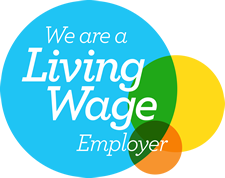
Insights
Helping not-for-profit organisations develop and sustain
the highest levels of employee and volunteer engagement

Insights

Firing up careers after a baby: What we’ve learned from parents who’ve succeeded
More than 40% of women fear the impact of starting a family on their careers. But it doesn’t have to be this way. What then can we learn from talented professionals who’ve bucked the trend by continuing to progress their careers after coming back from parental leave?
All those years in education, in workplace training and gaining vital experience, then suddenly the brakes are put on your career when you have children. A survey by PwC found that nearly half of mothers feel they’ve been overlooked for promotions or special projects. The same, and possibly even bigger, parental penalty faces fathers who want to play a more active role during the crucial early years of their children’s lives.
Why do careers stall after having children? Unfortunately, ingrained prejudices do still play a part – research carried out by the Fawcett Society found that four in ten people believe that women aren’t committed to their careers after having children. And even in organisations that are striving to tackle such biases, conscious and unconscious, stumbling blocks to career progress remain, from lack of dialogue with employees to needlessly inflexible working practices.
The career cul-de-sac can be as costly for businesses as for the people they employ. Investment in training and talent development is lost. Possible future leaders can become frustrated and leave to join a competitor. And as gender pay gaps come under the spotlight, it’s worth remembering that one of the biggest contributors is new mums’ difficulties in progressing up the career ladder.
Giving 100%
The Social Enterprise Leaders Plus runs a Fellowship for leaders with young children before and after maternity leave. During the pilot year, an external evaluation found that 27% of parents got promoted within a year of completing the programme. This is against the backdrop that most parents in the group were back at work after maternity/shared parental leave less than 12 months ago. There are a number of factors which made this possible and are replicable by HR leaders and their organisations.
What can make the difference?
Four priorities emerge from our Fellows experience within their work and as a group:
1/ Access to powerful peer network focused on progression
New parents have peer networks focused on babies, many of them joined the NCT (National Childbirth Trust) groups. They also need a support network of equally ambitious parents at work so they can share experiences and avoid isolation. Too often, social expectation of what it means to be a ‘good mum’ implicitly make parents feel guilty about being ambitious at work. We need to give parents not only networks focused on breastfeeding or baby sleep outside of work such as NCT, but we need a ‘Career NCT network’ which welcomes ambition and shows parents how a wide range of diverse role models have made careers work as parents.
2/ Career development edge
Getting more women into leadership positions and hence closing the gender pay gap doesn’t need more leadership training – many women are already fantastic leaders. What’s needed is the kind of sponsorship, alerts to upcoming openings and access to networks that men have routinely been able to call on to boost their career development. We don’t need more leadership training, we need career acceleration support.
3/ Symbolic moments
We’ve taken leaders and future leaders with babies to the House of Commons to learn from inspirational leaders from organisations stretching from HSBC to the NHS. Gathering leaders in one room to cuddle and feed while talking about how to become a CEO sends out a powerful message. At your organisation, this might take the form of a KIT/SPLIT conference day that welcomes babies where the CEO turns up and welcomes the new mums and dads back at work.
4/ Courageous line managers
Line manager attitudes can make or break career progression. Flexible working matters. But even more important is that line managers have the courage to make a flexible decision in the moment, backing the parent in front of clients or team members when a childcare emergency arises. Our Fellows tell us time and time again that they never forget how managers have reacted during crunch time moments. Line managers need support to be courageous, they get this by structured access to role models and training that focuses on values rather than just policies.
Life-changing confidence
The turnaround that’s possible when parents don’t have to apologise for being ambitious and ambitious future leaders don’t have to apologise for giving 100% to their kids can be transformational. And this can-do attitude is something that all organisations can foster through greater awareness, engagement and support. So, let’s embrace it.
You can find out more about Leaders Plus’ award winning Fellowship Programme for leaders with babies and young children here.
5 Linford Forum
Rockingham Drive
Milton Keynes
MK14 6LY
UK
Company No: 4509427
